Argentinians but living in Berlin, Mueran Humanos is one of the strange anomalies that luckily sometimes happen in music. They have released three difficult to label albums, the last one from 2019, Hospital Lullabies was played in Spain and in festivals like Le Guess Who? Although, finally, they are not going to play at W-Fest (for reasons beyond the festival’s control), we had this very interesting chat with Tomás Nochteff.
—Carmen first played in Mujercitas Terror and Tomás you were in Dios and Travesti. Can you please tell us more about these Argentinian cult bands?
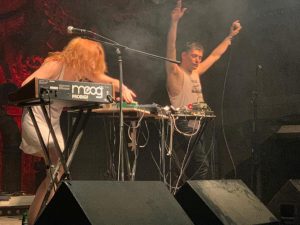 —Dios was a band made of a drummer and me on bass plus Pedro which is a great lyricist on vocals. We made short, dry, rhythmic, aggressive songs with talking vocals, really good lyrics with a street angle. In a way similar to Sleaford Mods (but before). Mujercitas Terror also is a band with great lyrics, complex dark songs played fiercely. Travesti is a band in which I played as a guest for two years. A psychedelic/synth/punk band, I played bass and some electronics for a couple of years, but I was never a full member, more like a guest.
—Dios was a band made of a drummer and me on bass plus Pedro which is a great lyricist on vocals. We made short, dry, rhythmic, aggressive songs with talking vocals, really good lyrics with a street angle. In a way similar to Sleaford Mods (but before). Mujercitas Terror also is a band with great lyrics, complex dark songs played fiercely. Travesti is a band in which I played as a guest for two years. A psychedelic/synth/punk band, I played bass and some electronics for a couple of years, but I was never a full member, more like a guest.
—When I see the name of the band, I always think in the classic videogame Destroy All Humans! The name comes, in fact, from a fanzine made by you, Tomás, using cut-ups, right?
—Yes, I used to do cut-ups with Newspaper’s titulars. After a while I noticed that all you can write using those words is terrifying. When I started compiled them in a fanzine, I thought that “Die Humans” was an appropriate name because that seemed to be the “true message” of newspapers.
—This technique of cut-ups has also been used in your lyrics, right Tomás?
—Sometimes I took those cut-ups and made songs out of it, yes.
—Has it been difficult to become “famous” singing in Spanish? Especially living in a country where Spanish is not the main language.
—Of course. Many people felt that if you sing in a language that they didn’t know, what you are doing it’s not for them. That’s not the case, what we do if for everybody, you don’t have to understand the lyrics. But being famous was never our objective. Doing what we wanted was always been our objective and in that sense we felt more than successful.
—The band started when Carmen moved from Buenos Aires to Barcelona, right? How were the first days in Spain? Carmen said that she felt a kind of hostility in Barcelona, not felt at all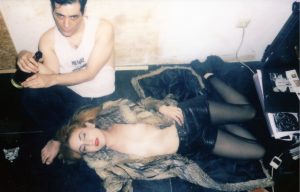 in Berlin.
in Berlin.
—Not in the city or the people in general, the city and people in general were great to us, but in the music scene there was some hostility towards the music we did, I think we were misunderstood in Barcelona at the time. There wasn’t any band doing anything similar to what we were doing, or we didn’t find it.
—In the first two singles from 2007 and 2008, we can see the more “abstract” version of Mueran Humanos. These singles were recorded in Barcelona, what can you tell us about this?
—For a while, maybe a year, all we did was very abstract, long improvisations, no vocals. At some point we started to sing over it. For us what we do now is the same, a natural progression that happened when we incorporated lyrics and vocal melodies to our noise.
—Maybe even more at the beginning, the influence of krautrock can be heard in your music and, Tomás you said that you liked Can, Faust and Neu! How did you get into those sounds and according to you, what is it they brought to Mueran Humanos?
—I got into it through bands like Joy Division, Wire, Cabaret Voltaire, PIL. Neubauten, Bauhaus, Chrome, Coil, which was the first music I liked, I was curious about what this music came from and that’s how I discovered kraut rock, Velvet Underground, musique concrete, dub, The Stooges, Silver Apples, etc. I have no idea how these influences manifests themselves into our music because we just want to sound like us, we are not in the business of remind people about their (or ours) favorite music. I remember listening to Kraftwerk and love it straight away. And on my first trip to Berlin I was 20 my friend Kaya has Monster Movie by Can on the car. I was blown away by it, but she has the typical German attitude about kraut, like “oh it’s just old hippies on acid, jamming.” I was “no no, this is fucking incredible!!!” From then on I moved to Faust, Neu!, Cluster, etc. I guess what I identified with those bands is how they synthesize “high” and “low” culture into one thing, the melody and the abstract. Also the fact that they wanted to do universal music, incorporating non-Western musical ideas like repetition, circular rhythms, trance.
—Is it difficult to be in a band with your partner? Can the band be another reason for arguments?
—It’s not for us, we just love each other and only do what we want to do so in reality it’s easier. Having a partner should be to help each other to be freer. Mueran Humanos for us is part of this process of becoming freer.
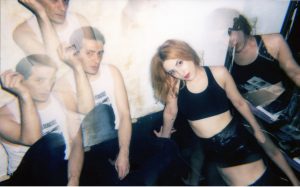 —Your first album, Mueran Humanos, has been published in two different versions. The CD one finishes with La langosta and the LP one with Exito de una ex santa. Why?
—Your first album, Mueran Humanos, has been published in two different versions. The CD one finishes with La langosta and the LP one with Exito de una ex santa. Why?
—We had two offers to release it, one in Europe by Old Europa Café in CD and another in the US by Blind Prophet Records so being two different formats in two different continents they agreed to do both versions. Then Old Europa asked us if we had another song to add because seven songs were a bit short. So we gave them La Langosta, which is 20 minutes. So to be fair with Blind Prophet we gave them Exito de una Ex Santa.
—The album was released by Italian label Old Europa Cafe, they also organize a very interesting festival called Congresso Post Industriale, where the band played. How was your experience there?
—Interesting, all the other bands were in the dark ambient/power electronics field, very dark and extreme music, which we enjoyed very much. We played right in the middle of the bill. We felt like the Beach Boys, compared to the other projects. It was very original from Rudolf from OEC to invite us. We loved the idea because we don’t believe in genres. We love the idea of being disruptive, we thrive on it. Being the elephant in the crystal shop.
—The band records and plays with old synths. Don’t you think that this really gives the band part of its peculiar sound? I mean that with new and expensive equipment it would be different, but maybe with a bit of less charm.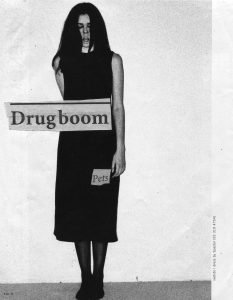
—Oh not at all, we use old and new, not only old. In fact, the only old synth we have is the Moog Prodigy and the oldest recordings were made with a shitty laptop only (plus my bass). We use what we can afford really, the equipment is not important, our sound is on the way we play not on what we use. In fact, there is not one analog electronic synth or drum machine on our first album, apart from a hand-made Theremin. We didn’t have even a sampler, we did all the weird sounds with cassette tapes, a Walkman and a destroyed four track portastudio. Nevertheless a lot of reviews and people said it was a pure analog electronic sound, but it wasn’t, the same way many people hear guitars on our music that are not there. It’s usually the bass or some synth, or any sound processed to guitar pedals that sounds like a guitar. It’s how we play, our sound is ourselves. The only reason we stopped using computers is because they were not reliable on stage and for ergonomic reasons. So we got instruments instead at some point but we couldn’t afford expensive gear at all. Of course I would love to have an 808, a Space Echo or a Moog Modular, but there’s also a perverse pleasure in using gear that is universally considered shit and manage to make good music with it. “Good” and “bad” sound doesn’t exist really, creativity is the key. To name two “shitty” devices we used all the time: the only distortion pedal I use is one of the most reviled ones of all time, the infamous Metal Zone by Boss. And Carmen used the Microkorg for almost every sound on our three records, almost everything that’s not the Prodigy was made with the Microkorg. Both are universally despised by gear geeks. But we are not rich kids who think they can buy magic with a credit card, we are two immigrants but we know how to twist whatever we got to make it magical.
—I read you talked about the centralization of culture in the counterculture, something I really agree with. According to you, how this problem can be fixed?
—It’s the way the world is organized, it can’t change if the world doesn’t change. Nevertheless I think people are surprisingly not aware of it, the majority of people can’t see how these mechanisms works. That’s why we talk about it. I thought it was obvious but for the majority of the people it’s not. That’s the way power works, by making itself invisible. Marx talked about it ages ago, how the powerful individuals camouflage their decisions as natural phenomena, like the rain. Because nobody can argue with the rain, right? It just happens. You can see it in the language in which they refer to major social phenomena. They say “there is a refugee crisis” or “the market crashed,” like these things just happened. But the truth is that some specific people made some specific decisions to make a very specific profit that caused those things to happen. I digress, I suppose, but it’s all part of the same thing.
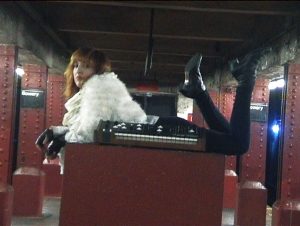 —Talking about industrial music, I read that both of you are big fans of some industrial bands like Coil or Psychic TV. What does industrial music mean to you, what do you consider industrial music?
—Talking about industrial music, I read that both of you are big fans of some industrial bands like Coil or Psychic TV. What does industrial music mean to you, what do you consider industrial music?
—As I said, we are not interested in genres. But yeah, Industrial music was one of my very first loves. I was attracted by the total freedom and confrontational aspect of it. Also by the disregard for the division between high and low culture, the way the original bands made avant-garde, philosophy and street culture collide into one thing. By their radicalism and total commitment. It set me on my path, that’s what I wanted to do. I identified with it. I was also born in a metropolis, surrounded by the ruins of the Industrial society, I also felt oppressed and controlled, disgusted by the mediocrity and hypocrisy of the modern world, I wanted something else and I found it in some of those old records. TG, Test Dept, Neubauten, Coil, Esplendor Geometrico, Nocturnal Emissions, Cabaret Voltaire and many others were all very important to me. But we never tried to sound “industrial,” we were inspired by those ideas, that’s all. It’s old music, we like it but we are not revivalists. The problem with the current Industrial scene is that they are so constrained by the old sound, aesthetic and subject matters. The spark of rebellion and individuality is almost gone. The original bands did have their own obsessions: Genet, Bataille, Crowley, Mishima, tape manipulation, BSDM, serial killers, concentration camps and so on. The new bands have exactly the same obsessions… Are we supposed to believe it did happen by them following their own star, their own true will, their own explorations in life, sex, philosophy, culture? Or they have no imagination of their own? We do, we have our own obsessions, thank you.
—What happened with the band’s second album Miseress? I read that it was re-recorded because the band was not happy with the first recording, is it right?
—Yes, we did it twice. But we also did twice the last one. We are very precious about what we put out. So if we are not convinced by what we did, we discard it and start again. We have a complete different version of each of those albums stored somewhere. The first one also was through three different phases. There is a pattern there, unfortunately. I wish we can break it, it would make our lives so much easier.
—Do you think that recording with ATP opened doors to a different audience? I mean you have played in festivals like Primavera Sound, with a public a bit more hipster (I don’t try to be negative as I go there every year) and now you are going to play in Le Guess Who?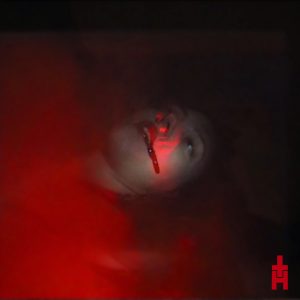
—Yes, no doubt about it, ATP helped us a lot to get into those places and in many other ways. They were great to us, no matter what people say, they took a weird band like us and did all they could do to help us. There is no place for a band like us in the First World, there is no precedent, we carve our place out of pure will, we refuse to accept a marginal place, and Barry and Deborah supported us purely because they loved our music. Maybe the association with them prevented people who are biased against them to work with us? I don’t know and eventually I don’t care, Barry and Deborah are now my friends and we stick to our friends. There are no saints and angels in the music industry anyway, it’s all bollocks. Maybe they are out of luck now, and in many ways you can say they are responsible for it. Fair enough, but they also did a lot of great things, they contributed immensely to music culture over the years and people shouldn’t forget about it. I believe that eventually history will vindicate them.
—In that record you had a collaboration wih Jochen Arbeit from Einstürzende Neubauten, how did you meet him?
—By pure chance the first months we moved to Berlin in 2008. We were all in a bar and a friend of us started to talk with him, we chat, he asked what we do, we wrote him our MySpace page in a piece of paper. He then wrote to us saying he liked what he heard and started to come to our gigs. Being all-time Neubauten fans, we were delighted with his support and his company. Then at the Neubauten annual convention 2013 we were having shots with him and he told us he wanted to guest on one of our records, so naturally we invited him to the studio while we were recording Miseress. He came with his guitar, his amp and his pedals and knock five songs in a day. He is the best, a true gent and a guitar hero.
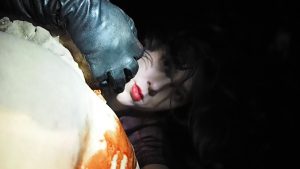 —How has the last album, Hospital Lullabies, been received so far?
—How has the last album, Hospital Lullabies, been received so far?
—It’s all right, I never know what to expect, we finish the bloody thing, we put our body and souls into it and released to the world, that’s all. People seem to like it, at least the people who liked the band before, they seem to agree that’s our best record, which is what we think anyways so it’s all good.
—The album also featured a film, where did you get the idea for doing this?
—Sometimes when we are working on music we let some movie without sound playing in the background, as some sort of animated wallpaper, a way to create a different space for us to immerse into. We were mixing the album and watching at the same time old footage made by Carmen, fragments of movies that she never finished. At some point we found a synchronicity into one song (La Gente Gris) and the footage (that’s now on the movie exactly as found). So Carmen decided to watch more old footage, dozens of tapes, to find more synchronities to do a whole movie to go with the album. That original “chance meeting” between footage and song is what set the whole approach to the movie. Minimal female portraits in a camcorder, made with Carmen’s friends. Half of it is “found footage” and the other half is new footage made with the same idea. In a linear way the movie it’s completely unrelated to the album. The connection is oblique. Putting the album and the movie together is a “cadavre exquis” (or a cut up) in itself.
—The band has really good lyrics, what are you reading now?
—I just finished a Borges biography by Horacio Salas and a novel by Graham Greene, a book of essays by Jean Cocteau, which is a personal hero of mine. It’s called “Secrets of Beauty” and it’s full of great insights about art and life. My sister gave me “The Book of Cain” by Alexander Trocchi for Christmas, so I guess I will read it now. Our friend and collaborator the great Argentinian writer Mariana Enriquez just published a new novel, Nuestra Parte de Noche, which is absolutely wonderful. She was translated to many languages and I can’t recommend her literature enough, you should all look for her books in your own language and give them a shot, she is a genius creating horror atmospheres and stories. Our other genius friend Javier Calvo also published a great novel this year, Piel de Plata, but I am afraid is not translated into English yet. I am always reading random poetry too. Lately Octavio Paz, John Donne, Jacobo Fijman and Mina Loy, to name a few. Mina Loy particularly obsessed me this past year. Fantastic.
—What are Mueran Humanos’ plans for 2020?
—We have a remix album from the tracks of Hospital Lullabies by a bunch of really great techno artists that are friends of the band like Silent Servant, Alessandro Adriani, Tom from The Horrors, Sam de la Rosa, An-I, among others, so we have to work in that release. We also will launch our own label with a reissue of our first album which is out of print for years now. We hope to tour a lot and to record new material. We have a lot of ideas. We just finished a South American tour to present Hospital Lullabies, now we are back in Berlin and we are going to work on new music.




